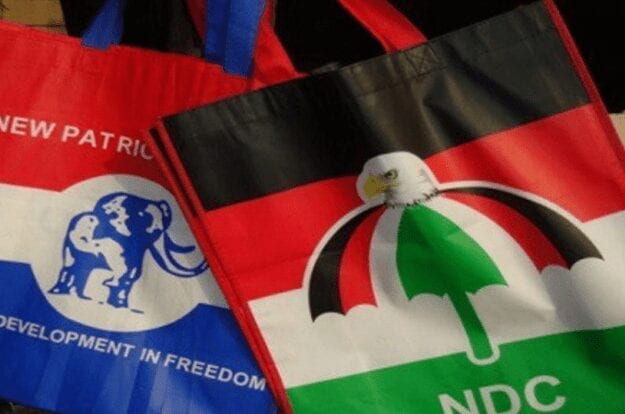Director of Operations at Dalex Finance, Joe Jackson, has criticized the tax cut proposals put forward by Ghana’s two leading political parties, the New Patriotic Party (NPP) and the National Democratic Congress (NDC), calling them little more than “populist pleasing wish lists.”
Speaking during the NorvanReports, Economic Governance Platform, and BudgIT Ghana X Space discussion on the Topic “Tax Cuts: Liveline For the Average Ghanaian Or Political Sweet Talk?”, Mr Jackson raised concerns about the lack of detailed financial planning behind the parties’ pledges, particularly in the context of Ghana’s challenging fiscal environment under an IMF programme.
Mr Jackson expressed frustration at the absence of any clear assessment of the fiscal impact of the proposed tax cuts and abolishment.
“For each tax cut they plan to implement, they should provide an estimate of how much revenue will be lost and outline how they intend to compensate for this shortfall,” he stated. Without such calculations, Mr Jackson argued, the proposals remain speculative and do not offer a viable path for economic management.
“It’s all up in the air,” he said, “and makes it very difficult to evaluate whether these tax cuts make any sense.”
Ghana’s economy, he noted, faces significant risks through 2025 and 2026, and without a clear strategy for revenue generation, the promises made by both political parties risk being unsustainable.
He therefore underscored the urgent need for more pragmatic and transparent policymaking, especially given the constraints of the IMF programme, which will continue to shape Ghana’s economic landscape in the coming years.
Furthermore, a key concern for Mr Jackson was the failure of both parties to present a comprehensive plan to increase property tax revenues—a measure that he believes would help to relieve the pressure on indirect taxes, which disproportionately affect lower-income households.
He criticised the long-standing inaction on property taxes, particularly under the current NPP government, and urged both parties to prioritise a robust and equitable property tax regime. Without such reforms, Mr Jackson warned, Ghana’s tax base will remain skewed, exacerbating inequality and undermining long-term fiscal sustainability.
Seasoned tax analysts have raised serious doubts over the feasibility of the ambitious tax proposals outlined by Ghana’s two leading political parties, the New Patriotic Party (NPP) and the National Democratic Congress (NDC), particularly in the context of the country’s ongoing International Monetary Fund (IMF) programme.
Both parties have pledged to abolish the e-levy and the COVID-19 levy, alongside reducing certain port duties—a move that analysts warn could undermine the government’s fiscal stability.
Speaking in an interview, Francis Timore Boi, a tax analyst, cautioned that the removal of these levies, without a clear strategy to replace the lost revenue, could derail the IMF-backed fiscal consolidation efforts.
“The COVID-19 levy and the e-levy together are projected to generate around GHS 7.7 billion in 2025. The absence of this revenue stream could create significant fiscal gaps,” he remarked.





















